Flies neglect food and endure shocks to seek a dopamine reward
Oct 27, 2023
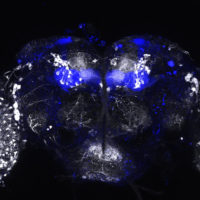
Oct 27, 2023

May 10, 2023
Congratulations are in order to Scott Waddell on his election to The Royal Society. Professor Scott Waddell FMedSci FRS is DPAG's Professor of Neurobiology and Wellcome Trust Principal Research Fellow in Basic Biomedical Science at the Centre for...
Read more
May 12, 2021
Professor Scott Waddell FMedSci has been elected a Fellow of the Academy of Medical Sciences. All new Fellows are selected by the prestigious National Academy for their exceptional contributions to the advancement of medical science through innovative research discoveries and translating scientific...
Read more
Oct 8, 2018
Fear memories allow animals to predict and avoid possibly dangerous situations. However, if an expected threat does not happen, it is also important to learn to be less fearful. This re-learning process is called memory extinction. Although extinction has been postulated for many years to involve parallel memories, it is unclear how and where extinction memories are formed and how they compete with the original memory to neutralise learned fear....
Read more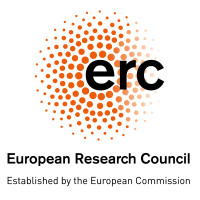

Jul 26, 2017
The shape and function of every cell in our body is determined by the amount and types of protein molecules that they produce. The building plan for each cell is stored in the DNA of the genome. This information is carefully copied and passed on to daughter cells during the reproduction, development and growth of all living organisms. Any changes (mutations) that occur in the DNA of each cell could potentially have devastating effects on the...
Read more
Apr 20, 2017
The bus doesn’t always arrive on time and your favourite dish is not always on the menu at the local restaurant. To account for an ever-changing world, animals must possess neural mechanisms to constantly update their learned predictions so that their choices correctly incorporate the new, sometimes contradicting information. A recent study from the Waddell lab in Nature reveals how the strength of memory-directed behavior is...
Read more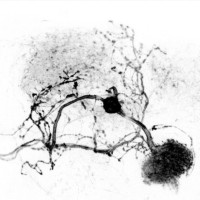
May 19, 2016
Hunger promotes the behavioural expression of food-seeking memories. A recent study from the Waddell lab in Neuron discovered the neural circuit mechanism that provides this control. Hunger-state modulation increases the activity of a pair of inhibitory interneurons of the mushroom body so that odours more strongly drive mushroom body output pathways that favour approach behaviour. Surprisingly aversive learning promotes odour avoidance...
Read more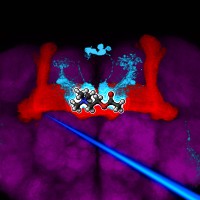
Mar 3, 2016
Memories are stored in the fan-out fan-in neural architectures of the mammalian cerebellum and hippocampus and the insect mushroom bodies. However, whereas key plasticity occurs at glutamatergic synapses in mammals, the neurochemistry of the memory-storing mushroom body Kenyon cell output synapses has been debated for decades. A recent study from the Waddell lab in Neuron shows acetylcholine is a Kenyon cell neurotransmitter in...
Read more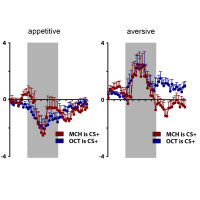
Apr 9, 2015
Finding locations in the brain where memories are formed, and understanding how memories are retrieved to instruct behaviour, are major goals of neuroscience. A recent study from the Waddell lab in Neuron localised memories to specific pathways in the output network of the fruit fly mushroom bodies. Surprisingly, reward and punishment learning altered odour-driven-activity of this connection in opposite directions. Moreover, it was...
Read more
Dec 22, 2014
Scott Waddell has received the Liliane Bettencourt Prize for Life Sciences 2014. Each year, the Bettencourt Schueller Foundation awards the Prize to a young researcher (under 45), recognized in the scientific community for the quality of his or her international publications. In addition to the recipient’s scientific recognition, the award-winning researcher must conduct a research project that is particularly promising and be able to...
Read more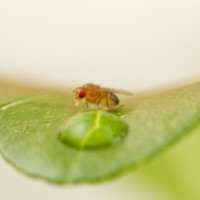
Nov 17, 2014
Drinking water is innately rewarding to thirsty animals. A recent study from the Waddell lab in Nature Neuroscience demonstrated that neural circuit mechanisms of water wanting, learning and liking can be distinguished by their requirements for dopaminergic neurons in the brain of thirsty flies. The full paper can be viewed Lin et al. (2014). Suewei Lin...
Read more

May 7, 2014
Prof Scott Waddell, Wellcome Trust Senior Research Fellow and Deputy Director of the CNCB, has been elected as a Member of EMBO, in recognition of his molecular biology-directed studies of brain function in Drosophila. EMBO has announced today on the occasion of its 50thanniversary that 106 researchers in the life sciences were newly elected to its membership. Of these, one hundred scientists reside in Europe and neighbouring...
Read more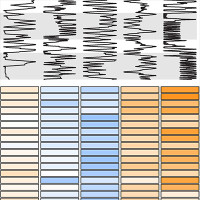
Sep 9, 2013
A CNCB double bill—papers from the Miesenböck and Waddell groups—appears in the September 4 issue of Neuron. Click here to read Moshe Parnas, Andrew Lin, Wolf Huetteroth and Gero Miesenböck on 'Odor discrimination in Drosophila: from neural population codes to behavior.' Read more
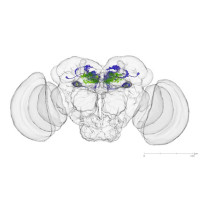
Apr 27, 2013
CNCB team shows that the neural reward system of flies is more similar to that of mammals than previously thought. A team led by Scott Waddell of the Centre for Neural Circuits and Behaviour shows that the fruit fly brain contains an evaluation system that is more similar to mammals than previously recognised. The research, published in Nature this month, demonstrates that the neurotransmitter dopamine, which is synonymous...
Read more